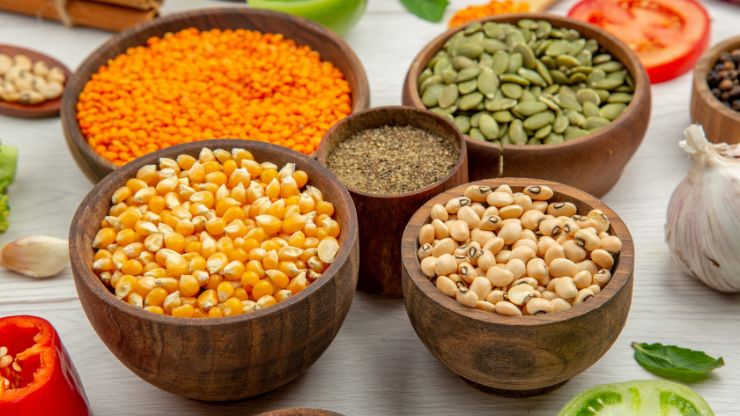Legumes, commonly referred to as pulses, hold a prominent place in global cuisines due to their versatile nature and nutritional value. These nutrient-dense foods boast an array of essential vitamins, minerals, and plant-based proteins, making them a valuable addition to any diet. By incorporating legumes into your meals, you can reap a plethora of health benefits, ranging from enhanced heart health to improved digestion and weight management.
In this blog post, we’ll delve into the top 10 best and healthiest legumes, highlighting their unique nutritional profiles and culinary versatility. Whether you’re a fan of lentils, chickpeas, or black beans, there’s a legume for every palate and dietary preference. Join us as we explore the world of legumes and discover how these humble pulses can elevate your meals and nourish your body for optimal health and well-being.
Table of Contents
ToggleHealthiest Legumes
Lentils
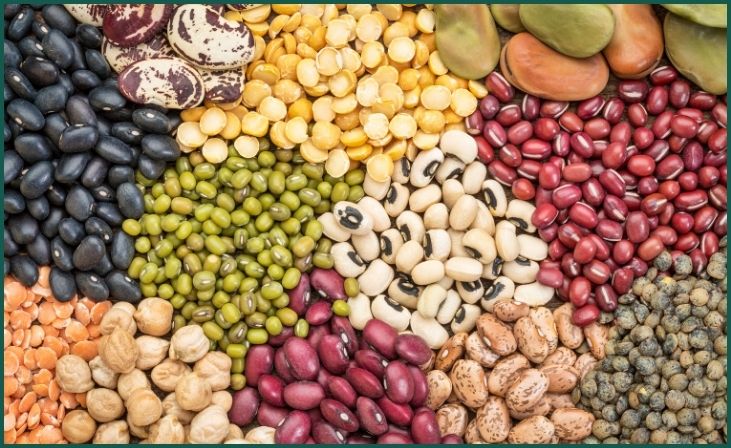
Lentils, available in an array of colors like green, brown, and red, stand out as versatile legumes packed with dietary fiber, protein, folate, iron, and other vital nutrients. Regular consumption of lentils offers numerous health benefits, including the regulation of blood sugar levels, promotion of digestive wellness, and reduction in the risk of chronic ailments such as heart disease and diabetes. Their ease of cooking and adaptability make them a convenient ingredient to incorporate into various dishes like soups, salads, stews, and veggie burgers, offering a nutritious and flavorful option for meals that prioritize both taste and health.
Chickpeas
Chickpeas, also known as garbanzo beans, are popular legumes used in Mediterranean and Middle Eastern cuisines. Fiber, vitamins, minerals, and plant-based protein are all abundant in them. Incorporating chickpeas into your diet can help improve satiety, promote weight management, and support heart health by reducing cholesterol levels. You can enjoy chickpeas roasted as a crunchy snack, blended into hummus, or added to salads, curries, and soups for a nutritious boost.
Black Beans
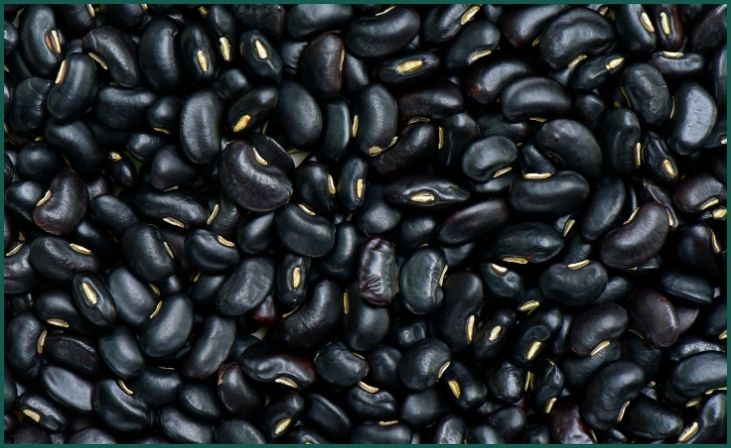
Black beans are a staple in Latin American cuisine and are prized for their rich flavor and nutritional value. They are loaded with fiber, protein, antioxidants, and various vitamins and minerals. Consuming black beans can aid in digestion, regulate blood sugar levels, and promote a healthy gut microbiome. These legumes are incredibly versatile and can be used in a variety of dishes, including tacos, burritos, soups, salads, and dips like black bean salsa or black bean dip.
Kidney Beans
Kidney beans are named for their resemblance to the human kidney and are commonly used in chili, soups, and salads. They are an excellent source of plant-based protein, fiber, folate, and iron. Incorporating kidney beans into your diet can help lower cholesterol levels, regulate blood pressure, and reduce the risk of cardiovascular disease. However, it’s essential to cook kidney beans thoroughly as they contain toxins that can cause digestive issues if consumed raw or undercooked.
Peas
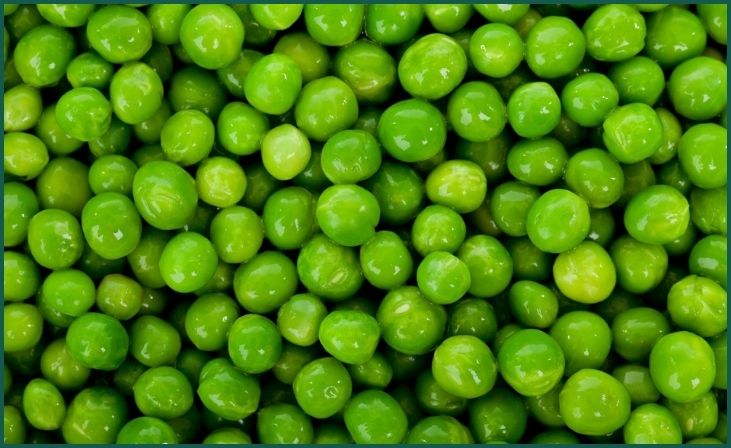
Peas are small, round legumes that come in various colors, including green, yellow, and purple. They are rich in fiber, protein, vitamins, and minerals, making them a nutritious addition to any meal. Peas contain antioxidants that can help reduce inflammation and protect against chronic diseases such as cancer and heart disease. They are incredibly versatile and can be used in salads, stir-fries, soups, and side dishes, or enjoyed as a snack on their own.
Don't just scroll, subscribe!
BuzzTrail's unique web-stories are the cure for boredom you've been waiting for.
Split Peas
Split peas, derived from mature peas that have been split and dried, offer a legume option known for their rapid cooking time and subtly sweet taste. These legumes are abundant in essential nutrients like fiber, protein, vitamins, and minerals, notably including folate, potassium, and iron. Noteworthy for their high soluble fiber content, split peas are beneficial for reducing cholesterol levels and supporting heart health. Often incorporated into soups, stews, and curries, split peas contribute both texture and nutritional value to dishes, making them a versatile and healthful addition to a variety of culinary creations.
Soybeans
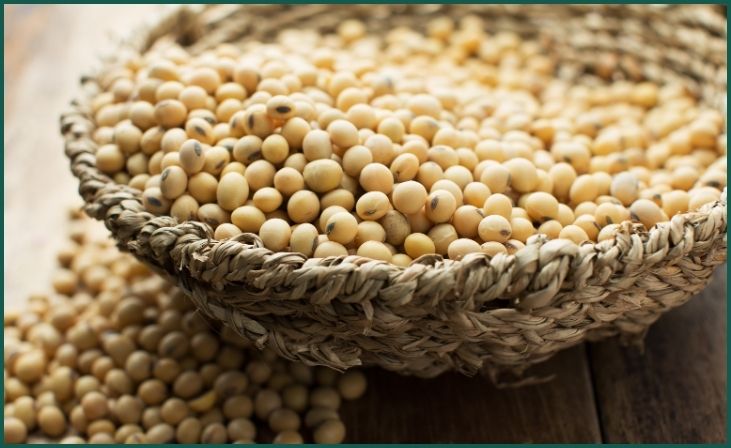
Soybeans are one of the few plant-based sources of complete protein, meaning they contain all nine essential amino acids that the body cannot produce on its own. They are also rich in fiber, vitamins, minerals, and antioxidants. Consuming soybeans and soy products such as tofu, tempeh, and edamame can help reduce the risk of heart disease, improve bone health, and alleviate menopausal symptoms in women. However, it’s essential to choose organic, non-GMO soy products to avoid potential health risks associated with genetically modified varieties.
Pinto Beans
Pinto beans are highly favored in Mexican and Southwestern cooking for their creamy consistency and rich, nutty taste. Boasting a wealth of nutrients including protein, fiber, and essential vitamins and minerals like folate, manganese, and magnesium, they offer a host of health benefits. With their notable fiber content, pinto beans aid in stabilizing blood sugar levels, enhancing digestive wellness, and facilitating weight management. These versatile legumes find their way into a variety of beloved dishes such as refried beans, chili, burritos, and bean salads, adding both flavor and nutritional value to meals while embodying the essence of regional cuisine.
Mung Beans
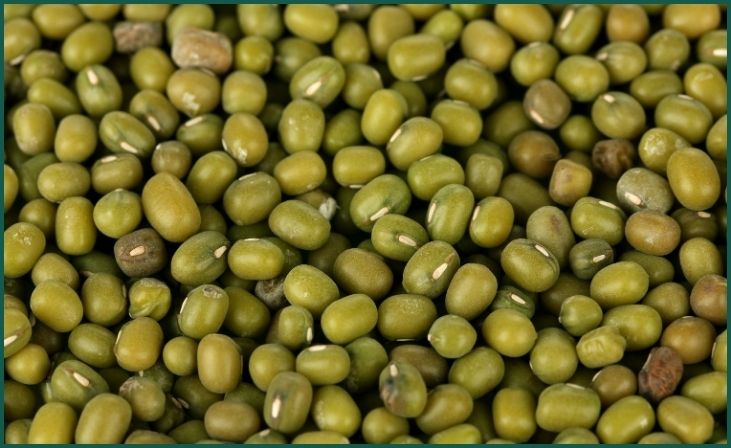
Pinto beans, renowned for their creamy texture and nutty taste, are staples in Mexican and Southwestern culinary traditions. Rich in protein, fiber, and essential nutrients like folate, manganese, and magnesium, they offer a multitude of health benefits. Pinto beans aid in regulating blood sugar levels, fostering digestive health, and facilitating weight management owing to their high fiber content. Often featured in popular dishes such as refried beans, chili, burritos, and bean salads, pinto beans add both flavor and nutritional value to meals, making them a versatile and nutritious ingredient in a variety of cuisines.
Black-eyed Peas
Black-eyed peas, also referred to as cowpeas, hold a significant place in Southern cooking traditions and are considered a symbol of good luck when consumed on New Year’s Day. These legumes are packed with essential nutrients like fiber, protein, folate, potassium, and iron. Incorporating black-eyed peas into your diet can contribute to improved digestion, balanced blood sugar levels, and enhanced heart health. They are versatile ingredients, commonly featured in dishes like Hoppin’ John, salads, soups, and stews, where they not only lend their distinct flavor but also provide a nutritional boost to meals. Whether enjoyed as a standalone dish or as part of a larger culinary creation, black-eyed peas offer both delicious taste and valuable nutrition.
Bottom line
Incorporating a diverse array of legumes into your diet is a highly beneficial strategy for enhancing overall health and nutrition. Whether you opt for lentils, chickpeas, black beans, or any other legume variety, you’ll be introducing your body to a wealth of essential nutrients. These nutrient-dense legumes offer numerous health benefits, including improved cardiovascular health, enhanced digestion, assistance with weight management, and a reduced risk of chronic diseases.
By embracing the versatility of legumes in your meals, you can enjoy flavorful and satisfying dishes while simultaneously nourishing your body. So why not embark on a journey to explore the wide array of legumes available today? By incorporating them into your culinary repertoire, you’ll discover a world of delicious and nutritious possibilities that can contribute to your overall well-being and vitality.
FAQs
Are legumes gluten-free?
Are legumes gluten-free?
Yes, legumes are naturally gluten-free, making them suitable for individuals following a gluten-free diet.
How can I reduce gas from eating legumes?
How can I reduce gas from eating legumes?
Soaking legumes before cooking, gradually increasing intake, and adding digestion-friendly spices like cumin can help minimize gas.

